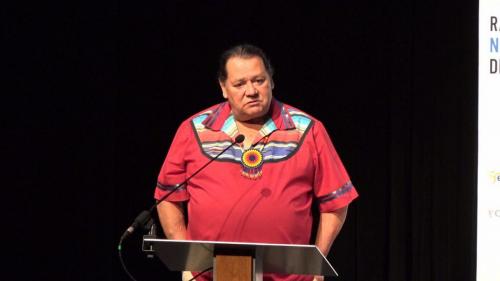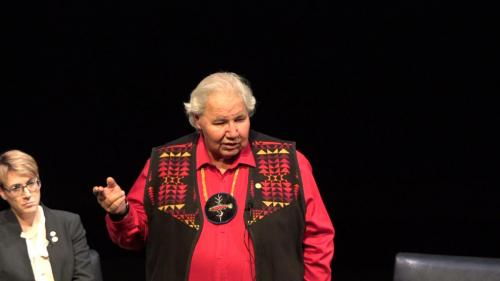59 Countries Delegates Gather in the 8th International Conference on Human Rights Education
Canadian Prime Minister Sets an Example to Human Rights by Delivering Apology to Aborigines
With 70 workshops, 300 participants from 59 countries are in the 8th International Conference on Human Rights Education (ICHRE) at Concordia from November 30 to December 3. The volunteers of UN/NGO Association of World Citizens shared their achievements in human rights education in recent years, including the global endorsement of “the Declaration of World Citizens”, “the Declaration for the Movement of An Era of Conscience” and “the Declaration on Taxpayer’s Human Rights”.

The opening ceremony of the 8th International Conference on Human Rights Education (ICHRE) took place at the Concordia University, Montreal, Canada.
The International Human Rights Education Conference was initiated in 2010 and held in different countries each year. It Canada's turn for the Conference in 2017 and it is also Canada’s 150th anniversary. The theme of the conference “Bridging Our Diversities” is to respond to global challenges on building more peaceful and equitable communities by providing effective solutions.

The UN/NGO Association of World Citizens has received echoes from around the world by exchanging the ideas of human rights education, children's right to future survival and taxpayer's human rights.
Dr. Sev Ozdowski of University of Western Sydney, said that a week ago Canadian Prime Minister Justin Trudeau apologized to indigenous children who were separated from their families and cultures. It is of great significance for the government to admit its mistakes, apologize to their own people and show respect for human rights with action.
Charles Patton, an elderly leader of Canadian indigenous Mohawk tribe, called on human beings should pay more attention on the change of the environment, or someday we will not survive.

Charles Patton, an elderly leader of Canadian indigenous Mohawk tribe, called on human beings should pay more attention on the change of the environment, or someday we will not survive.
Senator Murray Sinclair, a Canadian aboriginal retired Judge, considered that human rights education is very important for children, and different ethnic groups should learn to respect and communicate with each other through education.

Senator Murray Sinclair, a Canadian aborigine, deemed that different ethnic groups should learn to communicate through education.
Lee Chiu-ching, a volunteer of UN NGO Association of World Citizens (AWC) Taiwan, said that AWC has promoted human rights education in many schools in Taiwan for several years and has introduced the idea of "love, respect and peace" to the world. They had received echoes from around the world by exchanging the ideas of human rights education, children's right to future survival and taxpayer's human rights. In this way, they expected people are awakened, and governments value human rights. Moreover, the consensus and solidarity are not only built between the government and civil society, but also within and among countries.
Source: Association of World Citizens
- 746 reads
Human Rights
Ringing FOWPAL’s Peace Bell for the World:Nobel Peace Prize Laureates’ Visions and Actions

Protecting the World’s Cultural Diversity for a Sustainable Future

The Peace Bell Resonates at the 27th Eurasian Economic Summit

Declaration of World Day of the Power of Hope Endorsed by People in 158 Nations

Puppet Show I International Friendship Day 2020

